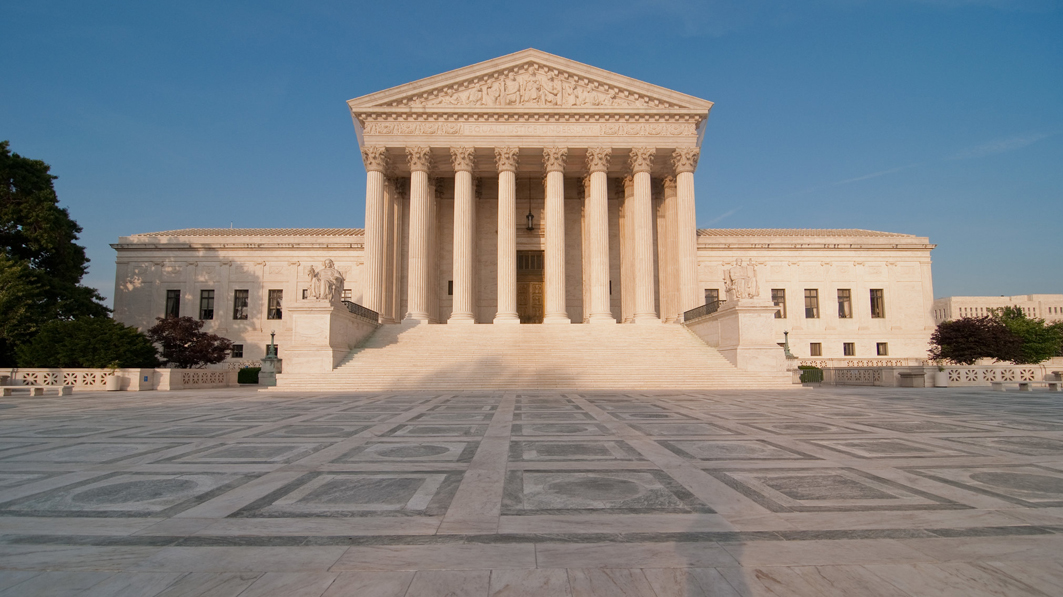We’re approaching the end of the Supreme Court’s 2018-19 term this month, and there have been a flurry of cases involving religious freedom, abortion, sexuality and other cases of interest to social conservatives that have flashed across our media feeds on their way to and from the Supreme Court. Some of those cases were accepted, some rejected. So which cases have been accepted by the Court and remain pending?
Decision expected
Bladensburg World War I Memorial, aka the “Peace Cross.” There are two cases consolidated for a single decision: Maryland-National Capital Park and Planning Commission v. American Humanist Association; and The American Legion v. American Humanist Association. A decision from the Court is expected any day. The case asks the question: “Does a 94-year old war memorial in the shape of a cross violate the First Amendment’s Establishment Clause because it sits on government land.
Significance: The Court has the opportunity to clarify and clean up the test it uses to decide religious freedom cases of this sort. A narrow decision that allows the memorial to stay only because of the specific set of facts involved, but doesn’t address the larger constitutional issues concerning religious symbols in the public square will still be a win, albeit a small one. However, a broadly worded opinion that not only allows this memorial but is useful for future cases and other religious symbols could be a major win for religious freedom.
Cases accepted, will be argued in next term
Harris Homes v. EEOC. A Christian funeral home owner refused a male employee’s request to wear women’s apparel to work as part of his “transition” from male to female. The owner’s refusal was based on his religious beliefs about the nature of God’s creation of male and female as well as sensitivity to how grieving families would react to seeing and interacting with the employee.
Significance: This case addresses a federal law (Title VII) that prohibits, among other things, employment-related discrimination on the basis of sex. Congress in 1964 did not include gender identity as a category or component of the law’s classification of “sex,” yet a few courts and the Equal Employment Opportunity Commission have taken it upon themselves in recent years to redefine “sex” to include “gender identity.” A victory for the funeral home could provide a strong precedent and deterrent to activist judges and unaccountable agencies that refuse to stay in their lanes and let Congress do the legislating.
Altitude Express v. Zarda and Bostock v. Clayton County GA. These cases are similar to the Harris Homes case in certain respects. These involve the same federal employment nondiscrimination law passed by Congress, as well as efforts by courts and the EEOC to redefine the word “sex.” The difference in this case is that the redefinition by some courts as well as the EEOC involves equating “sex” with “sexual orientation.”
Significance: Same as the Harris Homes case. A victory would be a decision by the Supreme Court that denies courts and agencies the authority to redefine words in a statute passed by the legislative branch. Such a decision would go a long way toward reining in activist courts and an ever-growing, power-seizing federal bureaucracy.
Next Term
The Court’s 2019-2020 term begins on the first Monday in October. We look forward to seeing these cases scheduled for oral arguments, with perhaps decisions from the Court around the first of the new year.
More critical cases coming
There are other major cases in the judicial pipeline that have been appealed to the Supreme Court which have neither been accepted nor rejected yet. From wedding vendor cases to abortion regulations to religious advertising to, believe it or not, whether the Little Sisters of the Poor will ever get a final victory for their religious conscience rights, we will have the updates for you when they happen.






